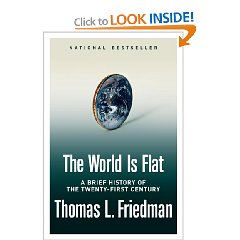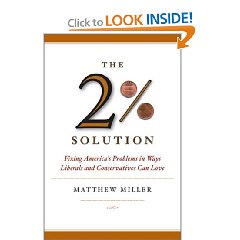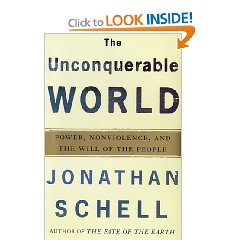Very few books cause me to question–even reverse–intellectual views that have been 52 years in the making. This book has done so. Although I have been uneasy for many years with America's loss of its warrior ethic and fit society, and the abdication by many Americans of their civic responsibility to understand foreign events and forces that threaten our way of life, this book for the first time in my somewhat extensive reading, has both crystallized the “fire alarm” nature of 9/11 in a unique manner, and caused me to hold the neo-conservative and unilateral militarists in somewhat greater regard. It even caused me to appreciate Zionism is a new light (while still despising corruption, lies, deception of allies, and inherent genocide–but still, a new look)–quite an accomplishment.
This is a difficult book to read–I recommend that it be read quickly, for flavor, rather than slowly, for trying to understand each sentence and each page could result in a loss of interest and quitting on the author before reaching the end. It's easier if you simply plug ahead and mark the high points–the book is full of gems of insight.
It is a very intelligent book, the *opposite* of the blind bible-thumping “there's only one book that matters” true believers that I am accustomed to hearing from, yet this book very elegantly complements the obsessive views of the bible-thumpers. This awesome book comes down to one question: what are you willing to die for? and one challenge: how many of you (us) are willing to die for anything at all?
The most important point that I drew out of this book was its legitimate and here-to-fore unarticulated criticism of intellectuals and liberals for having forgotten that their hard won liberties came at the cost of blood, and that utopian ideals are fantasies that distract one from the harsh truths of the real world. Others will focus on the author's more publicized point, that Al Qaeda is a ruthless enemy that hates us to the point of wanting to simply die while we die with it, and that is a useful point, but the two go together: we cannot be effective against our external enemy unless we also recognize our internal enemy, those mind-sets that prevent us from being effective in defending our values and our liberties.
There are three flaws or missing contexts in this book, and I mention them only to stress that while I hold this book in very high regard and am more accepting or tolerant of the neo-conservative viewpoint as a result, it is a partial view, nothing more. It does not address the corruption within our own society, where elected presidents, corporate CEOS, the churches, the New York Times, charities, and–today–the Boy Scouts–are all found to lack ethics and be frauds; it does not address the external diseconomies imposed by immoral capitalism; and it does not address the stark realities overseas that are going to wipe us out without any help from terrorists: the 59 plagues, the 18 genocides, the 32 failed states, the loss of potable water, etc.
In short, this author is absolutely world class on the fundamentals of recognizing that some people, you simply have to hunt down and kill. He does not address what I think of as “track two”: we need to stabilize & reconstruct the rest of the world so as to minimize the number of people we have to hunt down and kill.
He makes a good and excellent case for acting unilaterally, and for ignoring–even being dismissive of–the fraud of “sovereignty” that is represented by the United Nations and all these little “piss-ant” countries that are comprised of an elite that loots the country, and masses of impoverished, illiterate, “peasants” that represent potential hoards of human locusts carrying disease, crime, and instability wherever they migrate to….
He does not, however, satisfy me in addressing the lack of good faith among leaders who correctly choose to defend the nation with unilateral militarism, but also choose to lie to the public and betray the public trust by concocting false claims and by manipulating secret intelligence to their own ends.
On balance I find this book to be extremely important–one that liberals as well as conservative must read. It stresses the role of family as an antidote to gangs (something Lee Kuan Yew of Singapore champions constantly, and the Chinese generally have understood for centuries). The author also criticizes modern education for presenting “finished” or ideal concepts, and not providing the students with the life experience to learn the hard way that life is about compromise, trade-offs, partial satisfaction, etcetera. He ends by celebrating creative destruction and the value of commitment, including blind faith commitment when crunch time comes and one has to be obedient to the leaders we have trusted with our survival.
I value what this author has done. I take from this work three goals for the future:
1) We must reconstitute our society as a fit society with a warrior ethic and an inclination to study the outside world, not simply retreat into drugs/alcohol and sedative soap operas;
2) We must, as a society, agree that ruthlessness and the will to fight to the death matters, when faced by enemies that have no thought of compromise and have demonstrated by suicide that they are more than willing to do so themselves; and
3) We must–this is the part the author does not cover (see my lists for books that do)–formulate a grand strategy, a sustainable grand strategy, for addressing the 20 global problems that J.F. Rischard has identified, so as to prevent those problems from spawning more terrorists and sending our way more plagues, more illegal immigrants, more criminals.
This book is easily one of 25 books that I would recommend to every American and to most foreigners.











